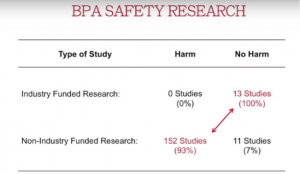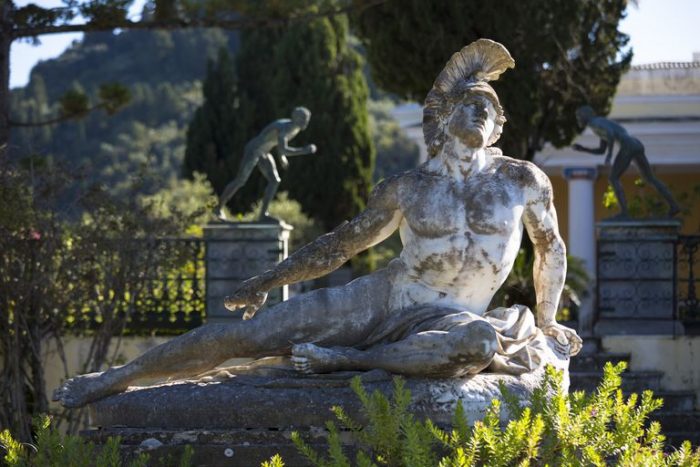
Achilles’ Heel: The Dangers of an Imperfect Invulnerability
Achilles heel:
a small problem or weakness in a person or system that can result in failure.
Maths has always been my Achilles heel.
Cambridge Dictionary
An Achilles’ heel or Achilles heel is a weakness in spite of overall strength, which can lead to downfall.
While the mythological origin refers to a physical vulnerability, idiomatic references to other attributes or qualities that can lead to downfall are common.
Page Description
The term ‘Achilles heel’
refers to a known weakness or
vulnerability that can lead to
severe consequences,
including failure or downfall.
Unveiling the Hidden Vulnerabilities in Justice and Research
Achilles, the legendary Greek hero, embodies strength, courage, and complexity. Yet even he had a fatal vulnerability – his heel – a symbol of how even the mightiest can falter when a single flaw is exposed.
In much the same way, police and justice systems, though built on principles of fairness and integrity, are not immune to their own vulnerabilities. Hidden biases, ethical compromises, and systemic distortions can undermine their purpose, just as Achilles’ heel betrayed him in his moment of glory.
This page explores these flaws through the lens of the video “Trust in Research – The Ethics of Knowledge Production,” drawing parallels between the corrupting influences in scientific research and the challenges facing justice systems. By understanding these shared vulnerabilities, we aim to uncover pathways to greater accountability, transparency, and trust.
Het Onthullen van Verborgen Kwetsbaarheden in Justitie en Onderzoek
Achilles, de legendarische Griekse held, belichaamt kracht, moed en complexiteit. Toch had hij een fatale kwetsbaarheid – zijn hiel – een symbool van hoe zelfs de machtigsten kunnen falen wanneer een enkele zwakte wordt blootgelegd.
Op dezelfde manier zijn politie- en rechtssystemen, hoewel gebouwd op principes van rechtvaardigheid en integriteit, niet immuun voor hun eigen kwetsbaarheden. Verborgen vooroordelen, ethische compromissen en systematische vertekeningen kunnen hun doel ondermijnen, net zoals Achilles’ hiel hem verried op het moment van zijn glorie.
Deze pagina onderzoekt deze zwakheden door de lens van de video “Trust in Research – The Ethics of Knowledge Production”, en legt de parallellen tussen de corrupte invloeden in wetenschappelijk onderzoek en de uitdagingen waarmee rechtssystemen worden geconfronteerd. Door deze gedeelde kwetsbaarheden te begrijpen, willen we wegen naar meer verantwoording, transparantie en vertrouwen blootleggen.
Achilles is a typical Greek hero;
handsome, brave,
celebrated for his fleetness of foot,
prone to excess of wrath and grief,
at the same time he is compassionate,
hospitable,
full of affection for his mother and respect for the gods.
“The Achilles heel” is an idiomatic expression that originated from Greek mythology and is commonly used in English to refer to a particular vulnerability or weakness in a person, system, or situation. The key points of using the expression “The Achilles heel” are:
Vulnerability or Weakness: The phrase “The Achilles heel” refers to a specific area of weakness or vulnerability. Just as Achilles, the legendary Greek hero, had a weak spot in his heel that ultimately led to his downfall, the expression implies that there is a particular aspect of the subject being referred to that is susceptible to failure or harm.
Known Weakness: The weakness referred to by “The Achilles heel” is typically well-known or easily identifiable. It is often a known flaw or deficiency that may be exploited or targeted by others. The weakness may not be immediately apparent, but it is something that can be recognized or exploited under certain circumstances.
Connotation of Fatal or Disastrous Consequences: The expression “The Achilles heel” is often used to convey the idea that the identified weakness or vulnerability has the potential for serious consequences, such as failure, defeat, or downfall. It suggests that the weakness is not trivial, but rather a significant flaw that can have dire outcomes.
Contextual Usage: “The Achilles heel” is commonly used in a metaphorical or figurative sense to describe weaknesses or vulnerabilities in various domains, such as individuals, organizations, systems, processes, plans, or strategies. It can be used in a wide range of contexts, including but not limited to, business, sports, politics, and everyday conversation.
Familiarity with Greek Mythology: The origin of the expression “The Achilles heel” is from Greek mythology, where Achilles was a hero with extraordinary strength, except for his heel, which was his only vulnerable spot. Therefore, a basic understanding of this mythological story adds depth and meaning to the usage of the expression.
In summary, “The Achilles heel” is an idiomatic expression used to refer to a known weakness or vulnerability with potentially severe consequences. It conveys the idea of a specific area of vulnerability that may lead to failure or downfall, and it is often used in a metaphorical or figurative sense in various contexts. Familiarity with Greek mythology is also helpful in understanding its meaning and usage.
An Achilles’ heel is a fatal weak spot in an otherwise invulnerable entity.
The name is derived from the Greek hero Achilles, who plays the main role in Homer’s Iliad. According to mythology, Achilles was dipped into the waters of the Lethe or Styx, rivers in the underworld, by his mother, the sea goddess Thetis, to make him invulnerable. However, she had to hold him somewhere, and she held him by his heel. This was the only vulnerable spot on his body and eventually led to his downfall in the battle against Troy: Paris struck him with a poisonous arrow after Achilles lost his sandal while chasing Hector around Troy.
The myth clearly refers to the fact that when the large tendon in the human heel (aptly named the Achilles tendon) is cut or damaged, it results in lameness or disability.
Een achilleshiel is een fatale zwakke plek in een anderszins onkwetsbaar iets.
De naam is afgeleid van de Griekse held Achilles die de hoofdrol in de Ilias van Homerus vervult. Hij was bij zijn geboorte door zijn moeder, de zeegodin Thetis, als kind in het water van de Lethe of Styx, een rivier in de onderwereld gedompeld om hem onkwetsbaar te maken. Zij moest hem daarbij wel ergens vasthouden, en dat deed zij bij zijn hiel. Dit was dan ook de enige kwetsbare plek op zijn lichaam en werd uiteindelijk zijn ondergang in de strijd tegen Troje: Paris raakte hem met een giftige pijl, nadat Achilles zijn sandaal verloren had toen hij Hector rond Troje achtervolgde.
De mythe verwijst daarbij duidelijk naar het feit dat wanneer de grote pees in de hiel van de mens (toepasselijk achillespees genoemd) doorgesneden of beschadigd wordt, dit kreupelheid betekent.
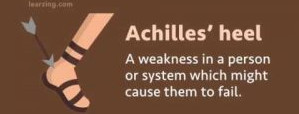
Hidden Influences and the Fragile Foundation of Trust
Exploring Parallels Between Knowledge Production and Institutional Integrity
The relationship between ethics and trust is as critical in the justice system as it is in scientific research. This page examines how hidden biases, systemic distortions, and small lapses in integrity—highlighted in the video “Trust in Research – The Ethics of Knowledge Production”—mirror challenges faced by police and judicial systems.
Key Insights from the Video
The video sheds light on the ways in which corrupting influences, often unnoticed, can distort outcomes in research:
- Small Lapses and Rationalizations: Ethical compromises may begin with minor actions but grow over time, eroding the foundation of integrity.
- Funding and Bias: Researchers may unconsciously shape their questions or interpretations based on their funders’ interests.
- Blinded Systems: Like the financial crisis described in the video, institutions can become “the blind leading the blind,” with individuals convinced they are doing the right thing despite systemic flaws.
Parallels to Police and Justice
Similar patterns can be observed in the justice system:
- Hidden Biases: From selective evidence presentation to prejudiced policing practices, small compromises can lead to significant miscarriages of justice.
- Corruption of Processes: Institutional structures, like those described in the video, can prioritize their own interests over truth and fairness.
- Lack of Accountability: Just as research may lack independent verification, justice systems may fail when oversight mechanisms are absent or inadequate.
Reflecting on Integrity
The video asks us to consider:
- What kind of trust underpins these systems?
- How do hidden influences shape outcomes?
- What steps are needed to ensure transparency and accountability?
A Call to Action
Both researchers and justice practitioners must recognize their ethical dilemmas and work actively to uphold integrity. The cost of failure is too great: trust is eroded, lives are disrupted, and systemic failures persist.
Verborgen Invloeden en De Fragiele Basis van Vertrouwen
Parallellen tussen kennisproductie en institutionele integriteit
De relatie tussen ethiek en vertrouwen is even cruciaal in het rechtssysteem als in wetenschappelijk onderzoek. Deze pagina onderzoekt hoe verborgen vooroordelen, systematische vertekeningen en kleine integriteitsverliesmomenten – zoals belicht in de video “Trust in Research – The Ethics of Knowledge Production” – vergelijkbaar zijn met de uitdagingen binnen politie en justitie.
Belangrijke Inzichten uit de Video
De video legt uit hoe onzichtbare invloeden de uitkomsten van onderzoek kunnen vertekenen:
- Kleine Lapses en Rationalisaties: Ethische compromissen beginnen vaak klein, maar groeien uit tot grotere problemen die de basis van integriteit aantasten.
- Financiering en Vooringenomenheid: Onderzoekers kunnen onbewust hun vragen of interpretaties aanpassen aan de belangen van hun financiers.
- Blinde Systemen: Net zoals tijdens de financiële crisis, kunnen instellingen “de blinden die de blinden leiden” worden, waarbij men overtuigd is het juiste te doen, ondanks systemische fouten.
Parallellen met Politie en Justitie
Vergelijkbare patronen komen voor binnen het rechtssysteem:
- Verborgen Vooroordelen: Van selectieve bewijspresentatie tot bevooroordeelde politietactieken, kleine compromissen kunnen leiden tot grote gerechtelijke dwalingen.
- Corruptie van Processen: Net als bij onderzoek kunnen institutionele structuren hun eigen belangen boven waarheid en rechtvaardigheid stellen.
- Gebrek aan Verantwoording: Zoals onderzoek soms ontbreekt aan onafhankelijke verificatie, falen rechtssystemen wanneer toezicht ontbreekt of tekortschiet.
Reflecteren op Integriteit
De video nodigt ons uit om na te denken over:
- Welk soort vertrouwen ligt ten grondslag aan deze systemen?
- Hoe beïnvloeden verborgen invloeden de uitkomsten?
- Welke stappen zijn nodig om transparantie en verantwoording te waarborgen?
Een Oproep tot Actie
Zowel onderzoekers als rechtshandhavers moeten hun ethische dilemma’s erkennen en actief werken aan het waarborgen van integriteit. Het falen hiervan brengt grote kosten met zich mee: vertrouwen wordt ondermijnd, levens worden verstoord en systemische fouten blijven bestaan.
Trust in research – the ethics of knowledge production
1 Trust in research — the ethics of knowledge production | Garry Gray | TEDxVictoria
Gepubliceerd op 22 dec. 2014
This talk was given at a local TEDx event, produced independently of the TED Conferences. We all take knowledge for granted every day: we assume that those who studied the health effects of using everyday products did their research accurately and without bias. But did they?
What if the researchers we trust to keep us safe are having their work influenced by hidden biases?
Garry Gray is a University of Victoria Sociology professor and a Network Fellow at the Edmond J. Safra Center for Ethics at Harvard University.
Draft summary of the talk by professor Garry Gray (12 minutes)For the past 3 years I was a researcher at the centre for ethics at the Harvard University where I examened
Corrupting influences and hidden biases in the persuite of knowledge
My goal to understand everyday life of researchers across all disciplenes
In the end I ended up with close to 10 000 pages of in-depth-interviews transcript
Today I want to share with you some of the ethical dilemmas
An increased risk of bias depending who is funding thier research
Why shoud we be concerned about the ethics of knowledge production
An idealist and naive idea of science
The ethics of knowledge production
The structures and Institutions
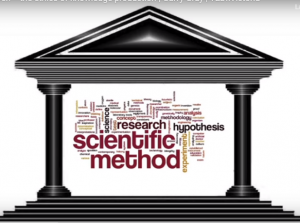
The close examination of how scientists produce
Patterns of scientific distortions
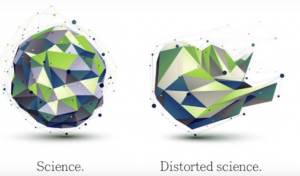
the corruption of knowledge
The majority of these distortions were not produced by bad people – although this does happen – your friends and family
Initially small lapses here and there
Little Scientific lapses
Not happy with the higher risk of a negative result
Maybe I sensor myself
these types of rationalizes
these little compromises
Neutralize any guily
Ethically lapses
Owner
Over time these small lapses
of which we convince it is ok
I sensor myseld and put the question in a different way
Trust
For instance plastic waterbotles
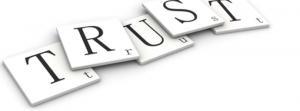
We trust that drinking from the waterbotle
We should be a little bit less trusty
Every study funded by the industries
The funding effect
Hidden biases
Some of the ethically dilemma’s
Patterns of distortions
Corrupting of knowledge
Corrupted and blinded
Corrupting influences and biases
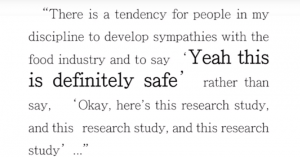
The funding effect bias is real
Scientist funding by the industry
Integrity
No industries funded studies
The questions themselves are kind of
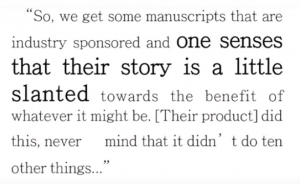
Overtime these little compromises
Knowledge production is overtime distorted
We see the pattern
From cell phone safety to climate change to soft drugs
Industry depended think tanks
There is a tendency to have sympathy with the food industry
A little bit
That the questions themselves are kind of selective
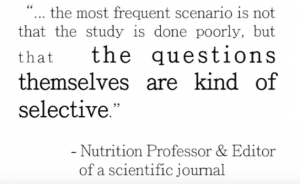

The most frequent often consulting managers
These voting members often service consultes
They might be experts but they are not independed experts
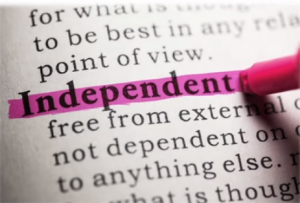
As you know in 2008 the world suffered a major financial crisis
Economic professors
blinded and corrupted professors

An upset queen of England
If the problem is so widespread why anyone noticed it?
The director told at every stage the Queen everyone was so blinded
A lack on in depended researchers
The blind leading the blind
And everyone though they did the right thing
No conflict of interest would influence my work
Corrupting influences an hidden biases
An conflict of interest
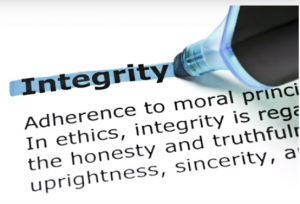
I would never …
However the power
Accidents related to cell phone distracted driving
The power to rationalize
Saying you have integrity is easy, practicing integrity is not easy...
And recognize our own lapses
What does this all mean
What kind of knowledge is produced
What are the strings attached when we receive funding
What questions there were asked
What kind of knowledge is used
Data confidential so that the research can never be verified
The funding effect bias is real.
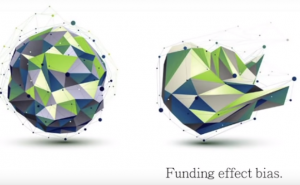
What does this all mean in the context of knowledge production?
Ask yourself what are the strings attached when we accept funding
Are the string visible?
Are the strings invisible?
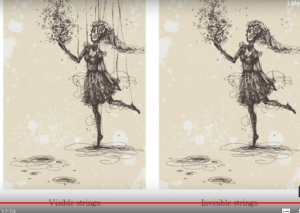
Scientist sensor themselves
My interviews make clear that the funding effect bias is real and if left unchecked
When you check a book
Information in knowledge take
A critical eye for independence
To value science
That the recherche result can never be checked
Information and knowledge requires science
To value
Summary: these little compromises
Minute 5: clips
Minute 7: The Queen
2 [PSYC 200] 3. Introduction to Human Behavior
13 jul. 2011
3 Stuart Firestein: The pursuit of ignorance
24 sep. 2013
4 Do we see reality as it is? | Donald Hoffman
11 jun. 2015
5 Candid Camera Classic: Ladies Only Golf!
10 jan. 2021
